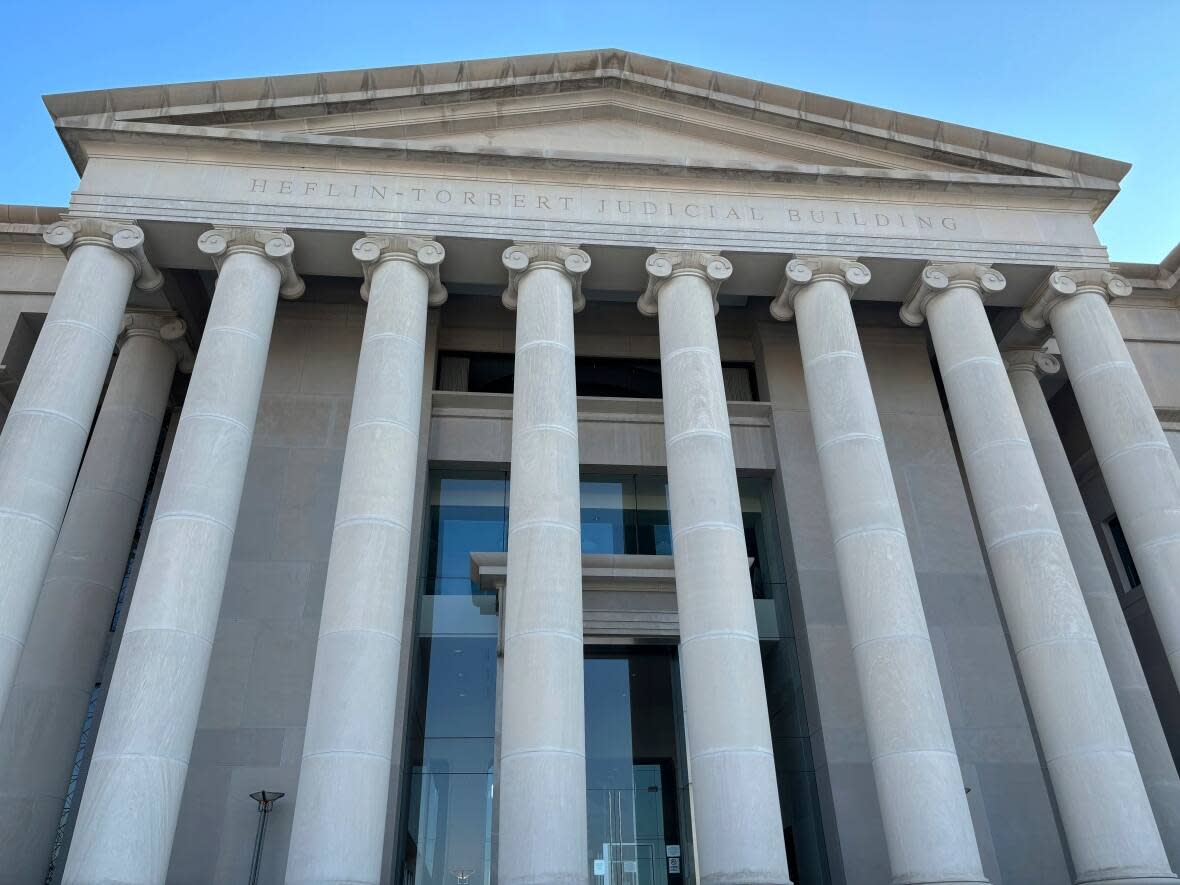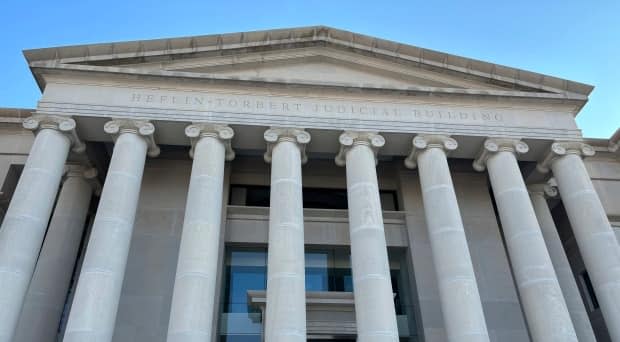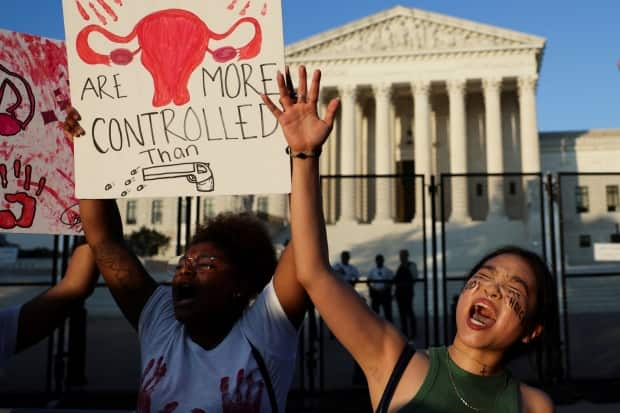Why Alabama's ruling that embryos are children could fuel anti-abortion movement in Canada

A decision by the Alabama Supreme Court that frozen embryos can be considered children under state law has some reproductive rights advocates and fertility law experts in Canada concerned about a potential ripple effect.
The worry isn't necessarily that a decision like the one in Alabama, that was issued in wrongful death cases brought by couples who had frozen embryos destroyed in an accident, could happen here, experts say.
Case law in Canada makes it clear that embryos aren't persons, and the criminal code states that a child becomes a human being only "when it has completely proceeded, in a living state, from the body of its mother."
But this kind of thinking — that embryos are children — could fuel anti-abortion movements in Canada and elsewhere, said Kathleen Hammond, an assistant professor in the Lincoln Alexander School of Law at Toronto Metropolitan University who specializes in the area of assisted reproductive technologies.
"Alongside the recent reversal of Roe v. Wade, and recent measures that have been taken in the U.S., like the total abortion ban in Alabama, this kind of decision is not surprising but extremely worrisome for reproductive rights," Hammond told CBC News.
Speaking from a national conference Thursday morning, Frédérique Chabot, executive director of Action Canada for Sexual Health and Rights, said the Canadian medical professionals at the conference were buzzing about their fear of liability in the wake of the ruling out of Alabama.
"They are talking about ... how spooked they are by these kinds of decisions and how that can already make some providers more shy to provide services like abortion, fertility treatment, because they are seeing a tide change," Chabot told CBC News.
"We are horrified to see, again, these kind of landmark court cases that are putting in place a political project that is very unpopular, that will impact people's health and access to care in the United States, and will have repercussions in Canada."

Michelle Flowerday, a fertility and surrogacy lawyer in Toronto, said her clients are "deeply worried" about the decision and others like it, as many of them seek fertility treatments in the U.S. And she says members of the 2SLGBTQ+ community could be especially affected.
"The vast majority of families in the 2SLGBTQ+ community who wish to have a family require the assistance of a third party, whether that person is a surrogate or a gamete donor, and many of those families will create frozen embryos as a step in their family-building project," she said.
"For those who already face barriers to family building, this devastating legal development adds insult to injury."
The Alabama case
Last Friday, the Alabama Supreme Court ruled that frozen embryos can be considered children under state law, a decision critics said could have sweeping implications for fertility treatment in the state.
The decision was issued in a pair of wrongful death cases brought by three couples who had frozen embryos destroyed in an accident at a fertility clinic. Justices, citing anti-abortion language in the Alabama Constitution, ruled that an 1872 state law allowing parents to sue over the death of a minor child "applies to all unborn children, regardless of their location."
"Unborn children are 'children' ... without exception based on developmental stage, physical location, or any other ancillary characteristics," Justice Jay Mitchell wrote in the majority ruling by the all-Republican court.
On Wednesday, the University of Alabama Birmingham hospital paused IVF treatments while it considers the ruling's significance.
The University of Alabama at Birmingham health system said in a statement that it must evaluate whether its patients or doctors could face criminal charges or punitive damages for undergoing IVF treatments.
"We are saddened that this will impact our patients' attempt to have a baby through IVF," the statement from spokeswoman Savannah Koplon read.

What are the implications?
IVF relies heavily on the freezing of embryos to minimize risk for people undergoing it while also maximizing the potential opportunity to have a child, explained Alana Cattapan, an assistant professor in political science at the University of Waterloo and Canada Research Chair in the politics of reproduction.
But if embryos are recognized as people, this puts the practice of IVF into question, Cattapan said. As the Associated Press points out, health-care workers will not want to provide treatments if those treatments may lead to criminal charges if embryos are destroyed.
"For people seeking IVF or other fertility treatments, this is extremely alarming, chilling, stressful," she said.
The wording of the decision, which she describes as "rife with religious rhetoric," could also potentially enable an even further roll-back of abortion rights in the state, such as access to the morning after pill or contraception, Cattapan added.
WATCH | There's a ruling coming soon on the abortion pill:
However, Cattapan says she isn't worried that a similar decision could happen in Canada, where court rulings have been consistent.
In 2019, for instance, Ontario's top court ruled a divorced woman cannot have a purchased frozen embryo implanted over the objections of her ex-husband. In 2013, the Supreme Court of British Columbia granted an order permitting a B.C. fertility clinic to discard the unclaimed sperm and embryos left in storage there after the clinic shut down.
"It would be difficult to find [embryos] as a person in Canada," Cattapan said.
"Practically, I am not worried about implications for doctors and intended parents in this jurisdiction, but witnessing the shift in thinking is, frankly, chilling and is going to require some strategic advocacy to swing the pendulum back.
Staying vigilant
But Chabot, with Action Canada for Sexual Health and Rights, says she's worried the changing legal and political landscape in the U.S. could impact reproductive health care as a whole. And while she, too, doesn't think we'll see a similar case here, the reversal of Roe v. Wade suggests anything is possible.
"The legal and policy landscape around reproductive health care in Canada is very different than how it exists in the United States, but even in the United States, before Roe v. Wade was overturned, five years prior it would have been unthinkable," she said.
"It took the right circumstances to line up to make it possible, so we have to be vigilant in Canada as well."

The Alabama decision just further shows why those involved in the reproductive and abortion rights movement need to constantly keep working, said Martha Paynter, an assistant professor in the faculty of nursing at the University of New Brunswick and author of Abortion to Abolition: Reproductive Health and Justice in Canada.
"Canada ... has completely decriminalized abortion, however there are gaps in care that are very important to address," she told CBC News.
"Rather than despair at what's happening in Alabama, we can reaffirm our continued commitment to work to expand access here."

